Strictly Personal
Putin’s tribal war by Dare Babarinsa
Published
3 years agoon
The Ukrainian conflict may prove to be the most consequential war of the 21st Century. It may also signal the end of the Vladimir Putin era in Russian politics and the reduction of the once-mighty Russia into a glorified Third World country armed with nuclear weapons. That may be the ultimate oxymoron, but it is not far-fetched.
On Monday, Russia and China denied America’s allegation that Russia is seeking military help from China. That this allegation could be made, at all, is a pointer to the terrible straight Russia had found itself under Putin. Without its oil export today, Russia cannot even compete with China not to talk of its old Western Allies with whom it fought Germany during the Second World War.
The Ukrainian War may also signal an end to the North Atlantic Treaty Organisation (NATO), in its old form as a military alliance. Faced with serious challenge from the catholic economic muscle of a resurgent China, the NATO alliance needs to reconsider itself as a military body.
Economics and diplomacy may dominate future conflicts without counting the army divisions of each side. The Western powers may be thinking that it is time to seize the initiatives from the Chinese factory workers who are dominating the world. They have even surpassed the Japanese as the ultimate economic rival to the Western World.
In 1987, I had joined a team of 15 distinguished visitors to Capitol Hill, the home of the American legislature, The Congress. On the corridor were many television monitors broadcasting live on C-Span network, the proceedings of The Senate. All the television sets that we saw were Japanese-made, mostly of the Sony brand.
A female Senator, who hosted our team in her office, complained that Americans were surrendering to the economic aggression of the Japanese.
Few years after our visit to the Capitol Hill, Japanese automaker, Toyota, surpassed General Motors as the number-one automobile manufacturer in the world.
Now both Japanese and the Americans are facing the competition of their lives from the Chinese. These were the Chinese that were so beholding to the Russians in the first half of the 20th Century.
During his 25 years in power, China’s Supreme Leader, Chairman Mao Zedong, travelled outside his country twice. On both occasions, he journeyed to Moscow to meet with Russian leaders.
During the Chinese Civil War that lasted for almost 30 years, the Chinese were the clients of the Russians, beholding to them in every way. Mao knew the Chinese Revolution would have been a non-starter without the help of the Russians and their leader, Comrade Josef Stalin, the famed Man of Steel.
Today, there are not enough steel in Russia to arm its troops and change the map of Europe. Putin’s gamble in invading Ukraine is nothing but a reckless attempt to force the world to reckon with him. Russia still has the second largest nuclear arsenal in the world. Its military is still ranked as second only to America’s.
By igniting another tribal war in Europe, Putin is making a bad situation worse. His victory, if it ever comes, would be very costly and unsustainable in the long run. Instead of having Ukraine as a buffer zone between his country and the West, he is turning almost all former satellite states of the old Soviet Union into anti-Russian countries.
Putin has rightly gambled that the West would not want to confront Russia militarily on the ground or in the sky. Despite the repeated request of Ukraine and its leader, President Volodymyr Zelenskyy, that America and its NATO allies should declare Ukraine a no-flying zone, America declined to do so. Ukrainians know that if America declares Ukraine a no-flying zone, Russia does not have the capacity to confront America in the sky. The Russian air force is second-rate compare to the air-muscle of the United States and its allies. Though it might be tactically effective to create a no-flying zone over Ukraine, it would be strategically suicidal.
Russia is not just another country with a second-rate air force. It is a nuclear power, the greatest in the world after America. It has enough nukes to destroy the world 10 times over. Russia is also a dictatorship where one man rules. If Putin is humiliated in the sky, he might be tempted to use chemical weapons or even reach for the nuclear button. A thermonuclear war with Russia may not last more than one week, but all the major cities of the world; New York, Moscow, London, St Petersburg, Paris, Washington DC, Rome, would be destroyed. Humanity may be reduced to ground-zero and civilisation returned to where it was 5,000 years ago.
It is evident that the Ukrainians are the losers in this conflict. The young Ukrainian president, who came to power on the wings of anti-Russian rhetoric, refused or was unable to acknowledge the strategic importance of Ukraine to Russia. In recent past, Ukraine had joined NATO forces in staging an elaborate joint military exercise on Ukrainian soil.
Zelenskyy had also upped his rhetoric against Russia by saying he was ready to defend his country’s territorial integrity by all means. He thought his NATO allies would go to war to defend him. He was wrong.
Putin has done enough to provoke Ukrainian hostility. First he seized Crimea, the rich resort of Ukraine. He is also promoting separatist agenda within Ukraine in provinces that have substantial number of native Russians. In truth, Putin was acting as an arch-tribalist, promoting only the interests of his kinsmen. Yet despite these provocations, a more mature leadership would have handled Russia differentially.
There are many things for Ukraine to protect. Its citizens live better than the Russians; they are richer, healthier and have greater access to the good things of life. Ukraine has the best health system in the old Eastern Europe, certainly better than Russia’s. This week, the United Nations Secretary General described Ukraine as the food basket of the world. If the truth must be told, the Russians envy their wealthier cousin, the Ukrainians.
With a more experienced leadership, Ukraine would have avoided this new tribal war. They could have done less with Russian baiting despite the heavy breathing of the Russian bear and the reckless ambition of Putin. By their ceaseless dalliance with the West, they provoked the anger and belligerence of the insecure Putin. It is no consolation that this war is most likely to end badly for Putin and his corrupt and inefficient oligarchy.
There is a lot to learn from the Ukrainian experience. One, war does not give sufficient notice. Two, no one, no matter how much he loves you, will fight your war for you. Three, it is always better to be prepared for war if you want peace.
Nigeria is not at war, but we have seen how unprepared we are even to maintain a semblance of peace. Few weeks ago, some well-fed billionaires imported bad fuel for us and for weeks, queues have resurfaced at fuel stations. No one has been sanctioned or considered culpable. Let the people bear the brunt. There is no strategic reserve for our oil in case of crisis, war or natural disaster. Mere wrong importation by some fat blokes had disrupted the national balance.
Even our trains cannot run its schedule course without running out of fuel and passengers get stranded in the middle of nowhere. Of course, it is normal and no one it to be blamed. How then can we be surprised that a suspected killer had the presence of mind to become the queen of Kirikiri Prison? One wisecrack declared: “If you are living in Nigeria and your BP is normal, then you are not normal!”
You may like
-


Russia’s Wagner claims to have recovered bodies of its mercenaries from July deadly attack
-


Russia, Ukraine exchange words over hunger protest in Nigeria, blame US, UK
-
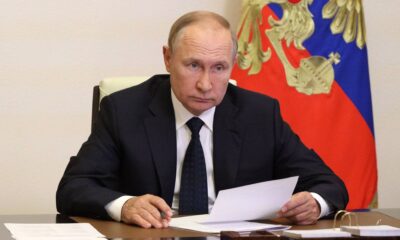

Putin sends Swahili-speaking envoy to Kenya
-


Russia’s Wagner admits heavy losses in fight against rebels in Mali
-


Russian state company, Malian junta negotiate nuclear deal
-
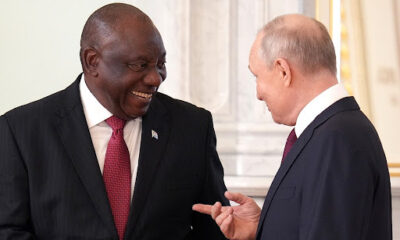

Russia eyes more partnership with South Africa as Putin congratulates Ramaphosa
Strictly Personal
For EAC states to excel, members should hire expatriate ministers, By Joachim Buwembo
Published
2 weeks agoon
October 11, 2024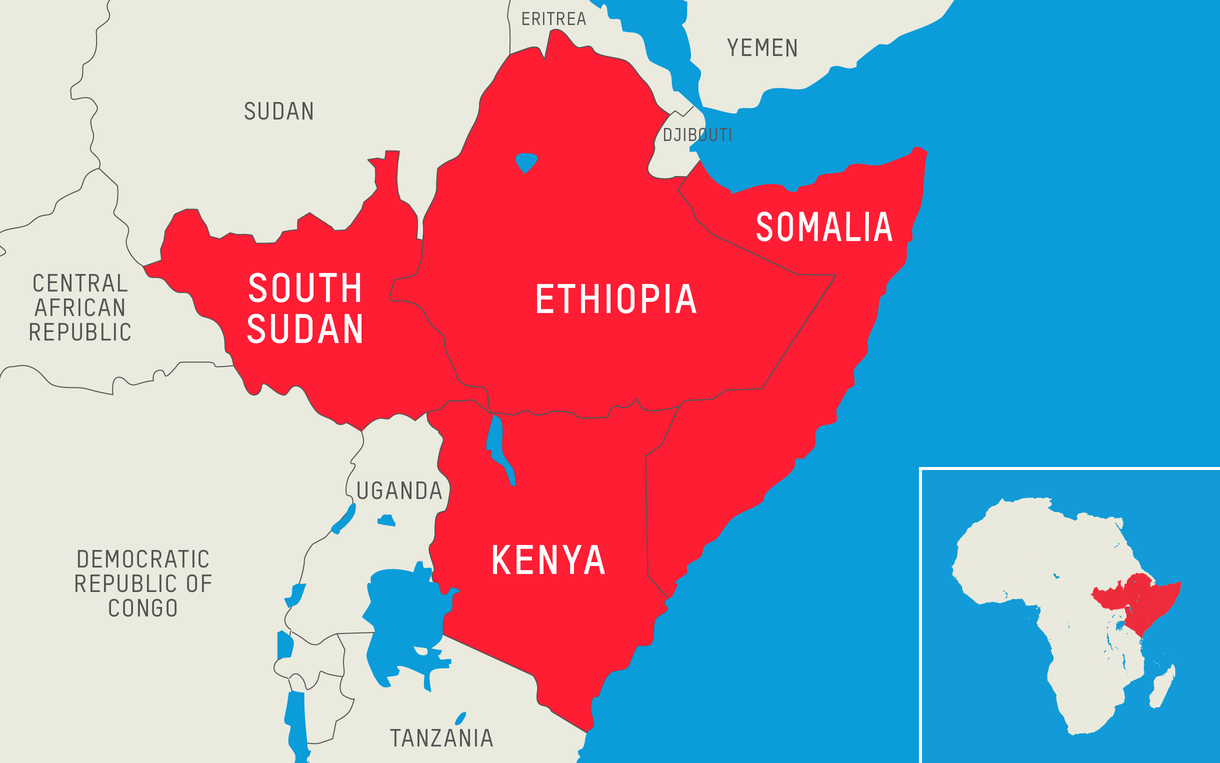
Next week, the East African Community, especially the original three members Kenya, Tanzania and Uganda, will be marking their revival Silver Jubilee, which is also an opportunity to reflect on 25 years after the passing of regional integration icon Mwalimu Julius Nyerere.
The integrationist and pro-federation Mwalimu would certainly be happy with the revival of the EAC. But how contented humanist Nyerere who committed his then poor country’s resources and lives to the emancipation of fellow Africans would be with the goings on in the region, can only be debated.
Hundreds of Tanzanian men and women at Nyerere’s command gave their lives so Ugandans would be saved from a dictatorship that attached low value to human life and “disappeared” political dissenters, with a few whose bodies were found having been disfigured sometimes with acid. In Kenya, extra-judicial executions of high-profile political dissenters were also being carried albeit with more sophistication than Uganda’s.
Should some people in Tanzania start derailing that lovely country backwards to catch up with the murderous Uganda and Kenya of the 1970s and criminalise the holding of different political views, then we would beg the EAC to find its manhood and insist that members start hiring expatriate ministers to man certain portfolios thus: For Justice and Law, expatriate ministers from the Scandinavian states would be preferable. But of course, beneficiaries of injustice and illegality would argue that ours are independent sovereign states; so to hell with protection of human lives.
For promotion of Trade and Tourism, expatriates from the United Arab Emirates would fit the bill. But of course, beneficiaries of poaching, smuggling and tax evasion would argue that ours are independent sovereign states; so to hell with expansion of trade and tourism.
For Industry, Indian expatriate ministers would do well to drive import substitution while creating millions of jobs in the region. But of course, beneficiaries of raw materials exportation and importation of consumer goods would oppose and argue that ours are independent sovereign states; so, to hell with the unemployed, human health and environmental protection.
For Finance and Economic Planning, Singaporean expatriate ministers would be appropriate, but of course beneficiaries of grand corruption and incompetence would argue passionately that ours are independent states; so let the taxes be stolen so the awful service delivery gets even worse while debilitating debts mount.
For Transport Infrastructure, expatriate ministers from the Netherlands would be suitable because integrated systems of air, rail, road and water were needed by yesterday, so that transport ceases being an obstacle and becomes an enabler of development instead.
But of course, beneficiaries dominant, inefficient transport modes will argue that we are independent, sovereign states; so let primitive transport systems and fragmented airspaces remain and keep the cost of living and doing business up.
For Energy, Japanese expatriate ministers would do the job to speedily guide our economies through the energy transition, and transfer technology like Chinese have done in Uganda to create local capacity to make electric vehicles.
But to drastically reduce reliance on fossil fuels some countries should consider hiring Ethiopian expatriate ministers who will know best how to say enough is enough, switch from internal combustion engines to electric.
US expatriate ministers can also be considered to help the adaptation of our aviation sectors to sustainable biofuel in addition to driving the processing of rare earth minerals into e-mobility batteries.
But profiteers from the poisoned fossil fuels would say we are independent and sovereign; so let fuel import bills remain high and the peoples’ health be damaged.
The all-important Education sector should without doubt be entrusted to expatriate ministers from Finland for wholesome development of our children.
But of course, the beneficiaries of the extortionist private schools and the cripplingly looted public institutions would argue that these are sovereign independent states; so let the children continue getting mentally stunted and unemployable.
And in Health, of course, the expatriate ministers should be from Sweden, to ensure that everyone accesses adequate health services. Expectedly, beneficiaries of public funds to secure treatment abroad and those who benefit from stolen medical supplies would argue that ours are independent sovereign states; so that the wanton deaths of children and mothers continue.
Give the Housing to expatriate Chinese ministers so we close the era of human beings living in pigsties. However, those who benefit from a disorganised, stunted housing sector would argue that we are independent sovereign states so the majority can continue living sub-humanly.
Joachim Buwembo is a Kampala based journalist. buwembo@gmail.com
Strictly Personal
Tanzania, we need to talk, By Othman Masoud Othman
Published
3 weeks agoon
October 4, 2024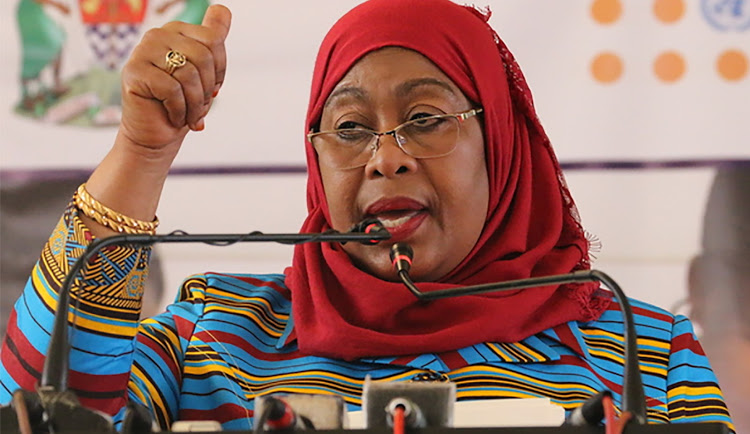
The ACT-Wazalendo party has been closely following and monitoring political events in the United Republic of Tanzania which, if not attended to urgently, might lead our country into an abyss.
In the six years of the presidency of John Pombe Magufuli, the country suffered a lot. There were claims of narrowing of the democratic space, the right to assemble and the right to free speech.
After the death of President Magufuli and Samia Suluhu Hassan assumed power, there was a sign of hope. The public optimistically welcomed the 4Rs (Reconciliation, Rebuild, Reforms, Reunite). Several positive measures were taken, including the formation of a special task force, which involved members from political parties, academic institutions, the private sector, and civil society. The team came up with many measures to be undertaken: Reform of political parties and elections laws, and the enacting of a new constitution. The President went further to investigate the problems around the criminal justice system and how to solve them.
It is one year to the next general election expected in October 2025, but there is a lot of pessimism, as not enough measures have been taken as promised. Even though the Elections Act was reviewed and the Electoral Commission renamed the Independent Electoral Commission, there is a lot to be done, including writing a new constitution and implementing the proposed reforms to the criminal justice system.
recently, there have been cases of abductions and disappearances of some activists and politicians. The situation got tense after a leader of Chadema, Ali Mohamed Kibao, was abducted and later found dead. Chadema accused the government security forces of these events and called for independent investigations. President Samia also condemned the abductions and ordered investigations.
Chadema also called for peaceful protests, demanding accountability and the police banned the demonstrations.
These happenings are a sign of uncertainty towards the general election, starting with the civic elections expected next month.
We urge the Chadema to reconsider demonstrations in the country. Human rights abuses are not just morally wrong, they are short-sighted. Human rights are a sound investment. They build resilient and prosperous communities and strong institutions based on the rule of law.
We, as a party, believe that our country has people full of wisdom and religious leaders who can guide our country back to the right track.
We urge all sides of the political divide to cool down. We believe that all players have reasonable demands and the failure to listen to each other has led us where we are as a country.
We urge the government to quickly initiate dialogue involving political leaders, the police, religious leaders and other stakeholders in order to bring sanity back to our country.
Our party leaders are engaging in talks between the government and other political parties to find solutions. We urge all the citizens of Tanzania to be united on this to build a better future. we believe that this is the time to talk.
Othman Masoud Othman is the First Vice President of Zanzibar and National Chairperson, of ACT-Wazalendo.
EDITOR’S PICK


South Africa succumbs to New Zealand in T20 World Cup final
After a fairytale run to the final of the Women’s T20 World Cup in Dubai, South Africa succumbed to New...
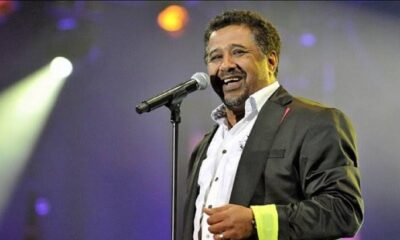

Algeria accuses renowned Singer Cheb Khaled of spying for Morocco
Algerian authorities have accused renowned musician, singer and songwriter, Cheb Khaled, of spying for neighbours Morocco as another wave of...


Rwanda’s e-mobiility startup IZI expands electric bus fleet after getting grant from Green Fund
Rwanda’s e-mobility startup, IZI, has announced the delivery of five electric buses to Kigali, the country’s capital city, after obtaining...
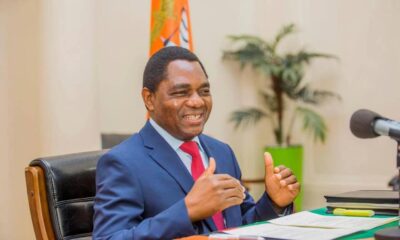

Zambia: President Hichilema sacks three Constitutional Court judges
Zambian President, Hakainde Hichilema, has finally sacked three Constitutional Court judges whom he had earlier placed on suspension. The affected...


In 6 months, Nigerians spent over $2.38 million on medical tourism
According to a recent report, Nigerians spent over $2.38 million on international healthcare services between January and June 2024. The...
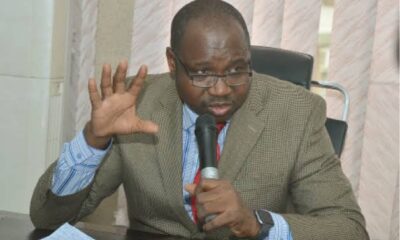

Nigeria confirms supplying 24-hr power to Togo, Benin, Niger
Despite its inability to provide steady electricity for Nigerians amid regular collapse of the national grid, Nigeria’s electricity regulatory body,...


Egypt reduces 2040 renewable energy target to 40%, prioritises natural gas
Petroleum Minister Karim Badawi announced on Sunday that Egypt had reduced its 2040 renewable energy target down from a previous...


Nigerian govt imposes 5% tax on telecom, betting services
As part of a new plan to restructure the nation’s tax system, the Nigerian government has proposed a 5% excise...


Again, Tunisian MPs want exclusive power of central bank over interest rates abolished
A measure by MPs on Friday indicated that the Tunisian central bank will no longer be the only entity able...
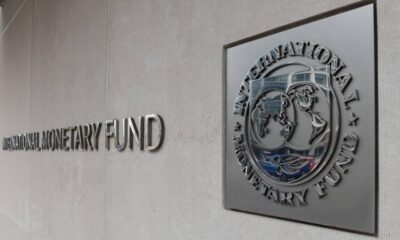

Ethiopia gets first $341 million loan program from IMF
Ethiopia’s $3.4 billion loan program received approval from the International Monetary Fund’s executive board on Friday, the fund announced, opening...
Trending
-

 Metro2 days ago
Metro2 days agoNigerians will begin to see the fruits of Tinubu’s labour— CoS Gbajabiamila
-

 VenturesNow2 days ago
VenturesNow2 days agoNigerian govt imposes 5% tax on telecom, betting services
-

 VenturesNow2 days ago
VenturesNow2 days agoEthiopia gets first $341 million loan program from IMF
-

 Metro16 hours ago
Metro16 hours agoNigeria confirms supplying 24-hr power to Togo, Benin, Niger


